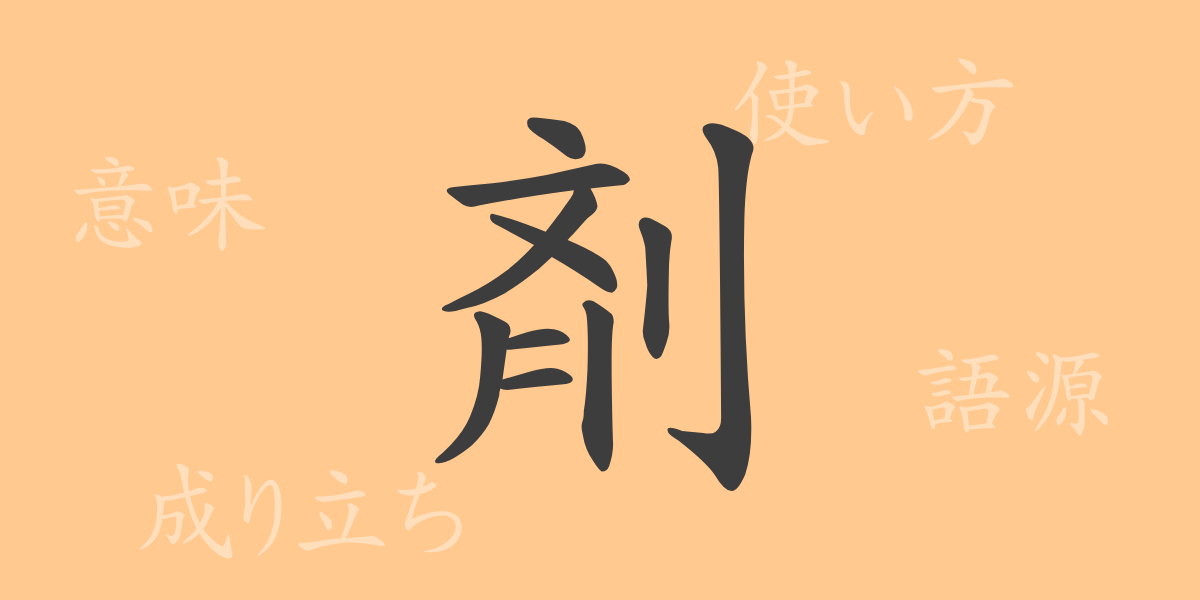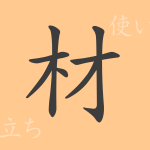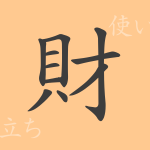Kanji are ideograms with deep historical backgrounds in their shapes and meanings. One of the commonly used kanji in Japan, “剤” (zai), is deeply rooted in our daily lives, spanning from pharmaceuticals to cooking seasonings. This article explores the origins, meanings, uses, and even idioms and proverbs associated with “剤” (zai), revealing its charm and significance.
Origins of 剤 (zai)
The kanji “剤” (zai) originated in ancient China, initially depicting yeast used in brewing or mixtures used in compounding medicines. Over time, its applications expanded to refer to pharmaceuticals and chemical substances. Today, various forms of “剤” (zai) have become indispensable in our lives.
Meanings and Uses of 剤 (zai)
The kanji “剤” (zai) means “to mix” or “to compound,” referring to substances created by combining multiple ingredients for a specific purpose. It is commonly used in contexts such as pharmaceuticals, detergents, and cosmetics, where mixtures are formulated to achieve particular effects.
Readings, Stroke Count, and Radical of 剂 (zai)
Let’s examine the details of the kanji “剤” (zai).
- Reading: The on’yomi reading is “ザイ” (zai), and there is no kun’yomi reading.
- Stroke count: “剤” (zai) consists of 10 strokes.
- Radical: The radical is 刀部 (りっとう, ritto), associated with the character for “knife” or “sword.”
Idioms, Phrases, and Proverbs Using 剤 (zai) and Their Meanings
There are many idioms and phrases that incorporate “剤” (zai). For example, “洗剤” (senzai) refers to detergents used for cleaning, “染料” (senryō) refers to dyes used for coloring, and “薬剤師” (yakuzaishi) refers to pharmacists, experts in pharmaceuticals. These terms are closely connected to our daily lives, each denoting specific functions or professions.
Conclusion on 剤 (zai)
This exploration has reaffirmed the diverse meanings and uses of “剤” (zai) and its importance in the Japanese language. “剤” (zai) is more than just a character; it plays a crucial role in enriching our lives and sometimes safeguarding our health. Every time you encounter “剤” (zai), remember the rich history and significance behind this kanji.

























